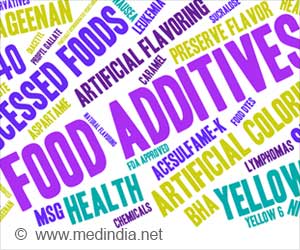- Study reveals 70% of popular protein supplements in India mislabel protein content
- Presence of harmful toxins (fungal aflatoxins) in 14% of the samples
- 8% of the samples contained pesticides
Citizens protein project: A self-funded, transparent, and concerning report on analysis of popular protein supplements sold in the Indian market
Go to source).
Protein Powder Safety Alert: Mislabeling and Toxins Found in India
70% of the 36 popular protein supplements examined were found to have inaccurate protein information, while 14% contained harmful toxins, and 8% showed traces of pesticide residue.70% of 36 popular protein supplements sold in India mislabeled, 14% contain toxins #medindia’
The analysis covered a wide range of protein powders, including those containing herbal and dietary supplements. It's worth noting that these supplements are often marketed as pure sources of proteins and amino acids, essential for bodybuilding and meeting daily protein intake goals. However, the reality seems far from the claims made by manufacturers.
One of the most alarming findings of the study is the presence of harmful fungal aflatoxins in 14% of the samples. Aflatoxins are potent carcinogens produced by certain fungi and can pose serious health risks if ingested. Additionally, traces of pesticide residue were found in 8% of the samples, further raising concerns about the safety of these products.
The Need for Stricter Oversight in the Protein Supplement Industry
Dr. Cyriac Abby Philips, the principal investigator of the study, highlighted the lack of proactive analysis of widely used supplements in published literature. While there have been sporadic reports on the quality of protein supplements from various parts of the world, there has been a glaring absence of comprehensive studies focusing on the Indian market.The study also brings attention to the regulatory loopholes in the supplement industry. Unlike drugs and medications, which undergo rigorous testing for efficacy and safety, dietary supplements often slip through the regulatory cracks. The responsibility falls on manufacturers to ensure the safety and accuracy of their products, but without transparent regulatory oversight, consumers are left vulnerable to misleading claims and potentially harmful ingredients.
In light of these findings, industry stakeholders, regulatory bodies, and consumers alike must come together to address these issues. Manufacturers must prioritize quality and safety, and regulatory agencies must strengthen oversight to ensure compliance with standards. Moreover, consumers need to be vigilant and discerning when choosing protein supplements, relying on credible information and reputable brands.
Reference:
- Citizens protein project: A self-funded, transparent, and concerning report on analysis of popular protein supplements sold in the Indian market - (https://www.ncbi.nlm.nih.gov/pmc/articles/PMC10994440/)












